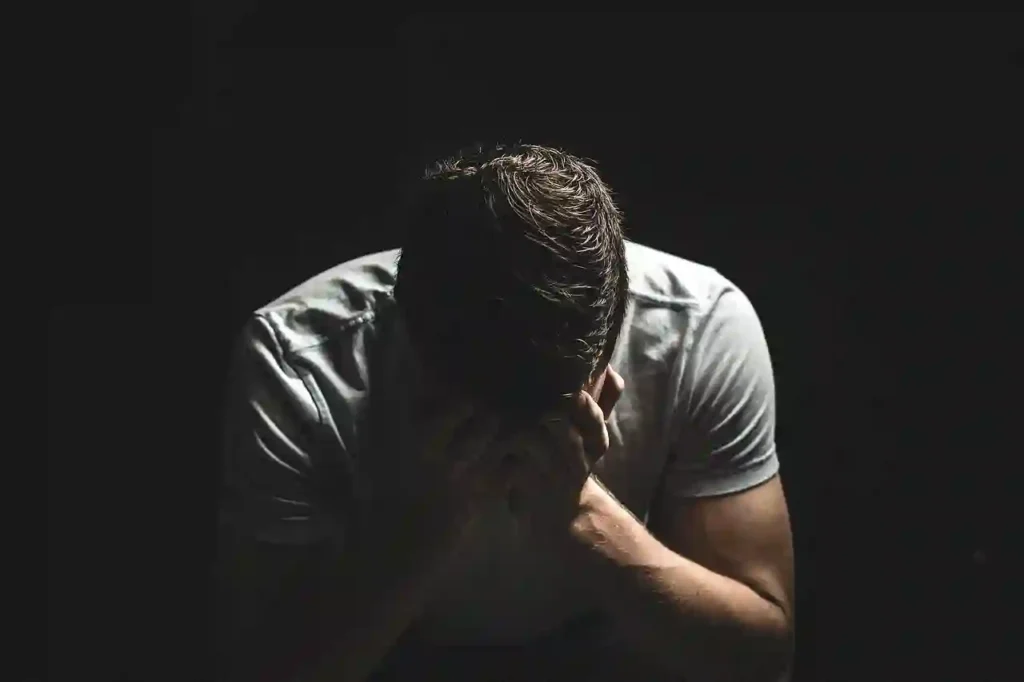Introduction

Can Low Testosterone Cause Depression? This is one of the questions that have become a topic of interest due to the increasing awareness among individuals regarding the linkage between hormones and mental health. Testosterone, along with physical well-being, is also crucial to emotional stability. The drop in levels can cause mood swings, fatigue, and the feeling of depression. Learning the impact of low testosterone on mental health is important in identifying the early signs and find the appropriate treatment to restore physical and emotional equilibrium.
Table of Contents
What is Low Testosterone?
Low testosterone also known as hypogonadism is a condition that the body produces inadequate testosterone and this results in fatigue, depression, loss of muscle mass, low libido and an overall hormonal imbalance.
Understanding Low Testosterone and Mental Health
Low testosterone does not have only physical energy effects, mental health may be affected too. Can Low Testosterone Cause Depression? Yes, due to the fact that testosterone has a role in the process of control of brain chemicals associated with mood, such as serotonin and dopamine. In case of a decrease in the levels of hormones, people might feel sad, demotivated, and unable to concentrate. Understanding how low testosterone is connected to emotional well-being aids in raising awareness regarding the necessity to consult a doctor and modulate lifestyle.
Link Between Low Testosterone and Depression
There is still research going on to determine the relationship between hormonal imbalance and mood disorders. Can Low Testosterone Cause Depression is a question because it influences the functioning of the brain, causing chemical imbalances. Low-testosterone men will tend to develop chronic sadness, irritability, and loss of interest in day-to-day activity. It is important to find the hormonal basis of depression since treatment can include testosterone, counseling, or lifestyle changes, rather than antidepressants alone.
Symptoms of Low Testosterone-Related Depression

Can Low Testosterone Cause Depression symptoms that mimic other mood disorders? Yes, there are several typical symptoms such as fatigue, irritability, low libido, poor attention and sadness. In contrast to general depression, low testosterone-related depression frequently involves emotional problems and an associated physical state, such as muscle weakness and weight gain. Knowing these similar signs can make people want to find the appropriate treatment. Immediate treatment of low testosterone will help avoid further aggravation of the depressive episodes and enhance the overall success of mental health.
Hormonal Imbalance and Mood Changes
Hormonal imbalance also has a major influence on the mood. Can Low Testosterone Cause Depression? There is no doubt about the fact that due to the testosterone imbalance, the stability of brain neurotransmitters will be disrupted. This hormonal imbalance usually causes anxiety, Irritability and long term sadness. Untreated mood changes can develop into a clinical depression. These risks can be mitigated by maintaining balanced testosterone by using medical supply, physical activity, sleep, and diet. People become aware of this hormone- mood relationship, which makes them take proactive action toward mental health.
Effects of Low Testosterone on Brain Function
Research on Can Low Testosterone Cause Depression shows that hormonal imbalance impacts brain function. Neurotransmitters that have been impacted by low testosterone include serotonin and dopamine, which cause mood swings, lack of concentration, and memory. These neurological effects tend to add to depression and fatigue making life more difficult. The relationship between low testosterone and brain function is vital to the management of mental health and the prevention of the long-term cognitive decline associated with hormone deficiency.
Medical Treatments for Low Testosterone and Depression
Addressing the question Can Low Testosterone Cause Depression, medical treatments play a key role in restoring balance. To improve hormonal balance and reduce depressive symptoms, testosterone replacement therapy (TRT) is regularly used. Antidepressants or combined therapies may be further recommended by the doctors to improve the results. It is imperative to monitor regularly so as to prevent side effects. Not only does treatment of low testosterone improve physical health, but also improves mood, energy and mental resilience against depression significantly.
Lifestyle Strategies to Boost Testosterone Naturally

When exploring Can Low Testosterone Cause Depression, natural lifestyle strategies can help restore balance. Frequent exercising, particularly strength training encourages the production of testosterone and lowers stress. A nutrient-rich diet with healthy fats, lean proteins, and zinc supports hormone health. It is also important to sleep and overcome stress. These changes in lifestyle allow people to increase testosterone, feel better, and decrease the probability of depression without relying only on drugs.
When to Seek Professional Help for Hormonal and Mental Health Issues
For those asking Can Low Testosterone Cause Depression, it’s important to know when professional help is needed. In case of such symptoms as constant sadness, fatigue, or low libido, it is necessary to visit a doctor regardless of lifestyle changes. Hormonal tests can be administered and specific treatments developed by endocrinologists and specialists in mental health. Early medical treatment is able to preclude long-term complications, enhance the quality of life, and both hormonal and mental health are managed successfully.
Conclusion
In conclusion, the link between low testosterone and depression answers the question: Can Low Testosterone Cause Depression? Yes, hormonal imbalance impacts brain function, mood, and overall mental health. Although medical interventions such as TRT and anti-depressants are effective, lifestyle modifications can also be effective in enhancing natural testosterone. Professional help is the best way to find the right diagnosis and treatment. Focusing on hormone balance aids mental health enabling a person to lead a better and healthier life.
1. Can Low Testosterone Really Cause Depression?
Depression can actually be caused by low testosterone. Hormonal imbalance is a direct affect on the brain chemistry resulting in chronic sadness, fatigue, and mood swings that can be similar to clinical depression symptoms.
2. How Does Testosterone Affect Mood and Emotions?
Mood and emotions are considerably affected by testosterone. Normal levels of testosterone lead to confidence, motivation, and good mental health and low levels of testosterone lead to irritation, stress and a higher probability of developing depression.
3. Is There a Direct Link Between Testosterone Levels and Mental Health?
Yes, testosterone level is directly related to mental health. Depression, fatigue, anxiety, and poor cognitive performance are all highly linked with low testosterone levels among men of all ages
4. Can Low Testosterone Increase the Risk of Anxiety and Irritability?
Yes, low testosterone predisposes the chance of anxiety and irritability. The hormonal imbalance disturbs the brain chemistry, and results in continuous stress, frustration, and feelings of emotional instability directly influencing the mental health of men.
5. How Is Low Testosterone Diagnosed in Men and Women?
Blood tests that determine the level of hormones, physical examination and assessment of symptoms are used to diagnose low testosterone in both men and women as well, making sure that the hormonal imbalances are identified.
6. Can Testosterone Replacement Therapy Improve Depression Symptoms?
Under the guidance of professional medical supervision, Testosterone Replacement Therapy (TRT) has the potential to increase the level of depression in patients with low testosterone to help in balancing mood, energy, and overall psychological well-being.
7. What Lifestyle Changes Can Help Boost Testosterone Naturally?
Naturally, testosterone levels can be increased through healthy lifestyle modifications like exercise, proper nutrition, good sleep, and regulation of stress, which contributes not only to physical health but also to better mental health results.
8. Are There Other Health Conditions That Link Low Testosterone and Depression?
Yes, low testosterone and depression can be an outcome of conditions such as obesity, diabetes, thyroid disorders, and chronic stress, and hormonal disruption is one of the factors in a range of interconnected health complications.